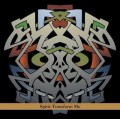Arts and Culture
Waiting for the Monsoon: Howe Gelb Leads Us Through the Desert
Whether as a solo artist or as the leader of the long-lived alternative band Giant Sand, this self-proclaimed “Meanderthal” from Tucson suggests that the safest distance between two points is probably not the shortest.
Patrol
Originally appearing in Pipelines, this ironic, disturbing and oddly romantic short story has been newly revised by Etgar Keret for Zeek.
Never Mind the Email
When was the last time the postal service played a positive role in your life? For the lonely, letter-writing protagonists of Mary and Max, when it comes to true friendship, home delivery is still the only game in town.
Scavenging in the Ghost Town: Hyperdub Comes of Age
With a two-disc compilation celebrating its fifth anniversary, Steve Goodman’s Hyperdub label honors the musical identity that fans have come to expect from its products while foraging for a different future. The rare example of popular culture that manages to politicize aesthetics without making its art suffer for it, Hyperdub’s best releases explore the predicament of postmodern identity and then show their audience a way out.
A History of Israeli Cinema
In 2009, director Raphaël Nadjari produced the first documentary history of Israel’s most celebrated cultural idiom. Reviewing the film in advance of its premier at the San Francisco Jewish Film Festival, Shai Ginsburg celebrated Nadjari’s focus on Israeli cinema. In honor of the documentary’s January 26 screening at New York’s Jewish Museum, Zeek is re-running Ginsburg’s essay.
A Fitting End? The Ex's Latest Record Testifies To a Remarkable Career
Heard from start to finish, 30 doesn’t suggest a detour from The Ex’s original goal so much as a widening of the route leading there. From the spare punk feel of “Rules” through the more tonally varied performances on “State of Shock”, “Frenzy” and “Ethiopian hagere,” the band’s sound has consistently foregrounded rhythm over melody. Most tracks, here and on their studio albums, give listeners little time to rest. But despite that insistently propulsive character, they are curiously refreshing, a reminder that moving forward often takes less energy than standing still.
The Timing of Transformation: A Record Makes Its Way Back To the Top of the Stack
There’s something about Oren Ambarchi and z’ev’s Spirit Transform Me that makes ad hoc montage curiously appropriate. One way to think about a work of this nature, with its lack of melody and wariness of regular patterns, is to regard it as an invitation to tear down the walls created through the division of mental labor. The spirit, in this interpretation, manifests itself in the urge to experience it’s components as a singular whole.
Poems: A Crown for Yiddish
Jacqueline Osherow is one of our best-known contemporary Jewish poets. We are pleased to offer here a cleverly woven sonnet sequence in which the poet visits Antwerp to find the mama loschen pristine, and is rewarded not only with “Yiddish cellular” but a new urge to daven, to find the diamond that is really hidden.
Everything is Local: Benny Torati's Desperado Square
Israeli film may seem more “Israeli” than ever. However, Israeli directors look as much abroad for their inspiration as they do at home. As unsurprising as that sounds, the cultural tourism of the exercise is worth the price of admission alone. Especially if you have an ethnic conception of Israelis.
Fiction: The Engines of Sodom
Skinhead then straightedge, a young hardcore fan makes his way through Toronto’s punk scene in order to come to terms with his family’s ties to the Holocaust.
Personal Best: The Decade in Music
An idiosyncratic list of the past decade’s best albums – scroll to the end of the piece – with meditations on why idiosyncrasy may be all music criticism has left to offer.
An Offensive Culture
A willingness to embrace the Jewish tradition of offensiveness, of awkwardness of refusing to fit in, safeguards the interests and dignity of those across the Jewish communal spectrum. If Jews see themselves as troublemakers, then perhaps the sterile debates about who has the right to speak for Jews will be replaced by a democratic and tolerant community of debate.
From Yaz To Yas: Arabology Fleshes Out Dancefloor Dreams in a New Idiom
This record translates – and in a carefully pre-meditated way – the infectious pop sensibility of New Wave icons like Yaz into an Arabic idiom. Songs like “Get It Right”, “Mahi” and “Yaspop” have all the right moves for the dancefloor, but also remind us that the opportunities for someone like Yasmine Hamdan to strut her stuff are largely confined to the experience of exile. This is music for an Arab Diaspora missing the comforts of home, in a musical language it can only indulge publicly in hostile foreign lands.
My Year in Consumption
One of the great things about culture is that despite the occasional hiccup, you can always maintain your faith in it. When music starts to suck, films get better. When blogs start to read the same, we get to to shorten the experience with Twitter. 2009 was no different. In no specific order, here are the ten categorical imperatives which, for a brief moment, helped me make editorial sense of it all.
![[the current issue of ZEEK]](../../../image/2/100/0/5/uploads/leftistethicistgraphic-52842c6a.png)
- 5000 Pages of Zeek
- Founded in 2001, Zeek was the first Jewish online magazine, and we have over 5000 pages online to prove it, all available free of charge. Read more in the Archive.
















